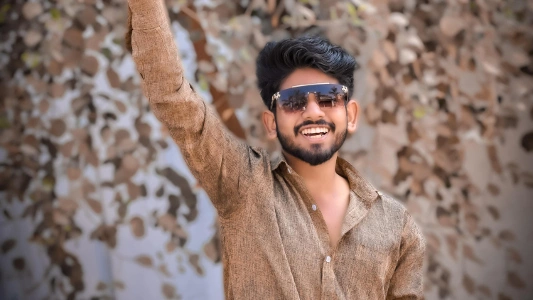My twisted relationship with food, as a type 1 diabetic

As a type 1 diabetic, I have a complicated relationship with food.
For years I’ve been micromanaging my food and insulin, and it’s taken a toll on my mental and physical health. I’m constantly worried about what I eat and how much insulin I take – It’s led to a dysfunctional relationship with food and severe anxiety.
When I was first diagnosed with type 1 diabetes, I was overwhelmed by the changes I had to make. Suddenly, everything I ate had to be monitored. And I had to take insulin injections multiple times a day.
I learnt to count carbs and calculate insulin rations, and I became obsessed with making sure everything was perfect.
At first, it was manageable. I felt like I had control over my diabetes, and was proud of myself for managing it so well. But over time, it became an unhealthy obsession.
A fear of food
I started to fear food, especially foods with high carbs.
I’d spend hours researching the nutritional information of different foods, trying to find the lowest-carb options. I’d meticulously measure out my portions and panic if I accidentally ate something I hadn’t accounted for. And I started to avoid social situations that involved food because I was too scared of what I might have to eat – I would bring my own food to parties and events to make sure I wouldn’t eat anything that would throw off my insulin calculations.
As my obsession with food and insulin grew, so did my anxiety. I’d wake up in the middle of the night, worried my blood sugar was too high or too low. I’d constantly check my blood sugar, even when I didn’t need to. And I’d panic if my blood sugar was even slightly out of range and feel like a failure if I had to correct it with extra insulin or food.
My life felt like it was consumed by diabetes, and I couldn’t escape it.
Anxiety
Over time, my dysfunctional relationship with food and the anxiety it caused me started to affect my physical health.
I lost weight and was constantly tired and irritable. My blood sugar was often too low, and I’d have to eat something to bring it back up.
And then I’d worry that I’d eaten too much and take extra insulin to compensate.
It became a vicious cycle, and I felt trapped in my own body.
The turning point
It wasn’t until I saw some documentaries on diabetes management that I realised how unhealthy my relationship with food and insulin become.
I was diagnosed with an eating disorder and started to work on developing a healthier relationship with food.
It was a long and difficult process, but with the help of my therapist and diabetes care team, I slowly got better.
Building new habits
I began by allowing myself to eat foods I’d been avoiding for years. I’d still calculate my insulin and monitor my blood sugar level, but I’d also listen to my body and eat when hungry. And I started to go out to eat with friends and family, and try new foods without fear – I learned that it was possible to have a healthy relationship with food, even with diabetes.
But the anxiety and micromanagement never completely went away.
I still have moments where I panic about what I’m eating or worry about my blood sugar. But I’ve learned to manage those feelings and focus on the bigger picture. I know my diabetes is just one part of my life, and there’s so much more to me than my blood sugar level.
My lesson for other diabetics
Living with type 1 diabetes is a constant battle, both physically and mentally. It can be overwhelming and exhausting, and it can take a toll on your mental health. But it is possible to develop a healthy relationship with food and your diabetes. And you shouldn’t be afraid to reach out for help if you need it.
Looking for more stories like this?
Harsh was born with type 1 diabetes. At 21, he feels diabetes forced him to mature early. But it’s taught him valuable life lessons, and made him stronger.
Harsh was born with type 1 diabetes. It’s made his life a constant battle. But he refuses to let it define him, and has learned to live beyond it.
At 5 years old, Devika’s son was diagnosed with type 1 diabetes and their whole world changed. But together they learned how to manage their new normal.








